-
Senior Member
registered user
Has remastering mostly lost its sense?
For quite a few years, the basic advice about remastering has been: Don't do it. After all, most of those who really need to do it, know, and don't need to ask. 
With increasing media speeds and decreasing prices, the direct utility of a remastering becomes more and more questionable. Our programs don't need so much space as is offered, and one should think twice before remastering to make room for higher-volume data storage in loop-mounted file. That is best done on separate files/partitions/media.
When we let flash-knoppix set up a separate partition with a persistent store as big as we wish, we greatly reduce the need for remastering. With 4GB cloop + 4 GB persistent store, it is quite easy to run into the need for remastering, with a 4 + 8 setup, it is way harder. And using a 16GB stick (ca $20 worth?) to the full in a 4 + 12 setup, its _very_ hard to overfill it with programs and occasional user data during one year of use. Provided, of course, that we avoid bloatware.
And I don't think it is advisable to plan for much more than one year of use between version upgrades. If it is important to continue the use of an older version, that is much safer and better done by running it in a virtual machine. (It will of course often be possible to run a new release in a VM under an older version, too.)
The simple fact about remastering is that, as long as you don't purge a lot of programs from the original Knoppix release, it is little to win by doing it. If you, for example, install 4GB extra programs, that _may_ be compressed to just 1.6 GB of extra space, but more and more, program systems will already be compressed (like Java jar-files). And saving that best-case 2.4GB space earns you, say, about $5. Which may be a lot - if you produce thousands of copies.
And when you do purge a lot of programs, you are in the danger of introducing errors to the system. From my owm experience, that's not just a theoretical possibility, but a huge risk.
The best reason I know for remastering today, is to create a full 64-bits Knoppix. But that's not, generally, very easy. So other Debian-based distros offering 64-bits versions may provide a better point of departure. We still need a Knoppix alternative to debootstrap, knxbootstrap.
-
Senior Member
registered user
Greetings, Capricorny.
You and Werner have pretty well spelled out how to go about re-mastering
Knoppix for those that are so inclined. I find that re-mastering takes more
resources than are necessary for my particular computing needs, and that
Knoppix provides another simpler practical possibility.
My computing needs are met mostly by a CD-size LiveUSB with a relatively
small persistence file. I occasionally compact my current persistence file
into a read-only overlay, and re-establish a new 'empty' persistence
file to accept any further additions. This keeps things small and makes it
less necessary to backup anything.
For example, I'm now operating with a KNOPPIX1 compressed read-only overlay
of 310 Mb which contains all my usual home/knoppix/ personal stuff, several
Synaptic-added packages, and a few tweaks to /etc/. My fat32 partition is
2.5 Gb total, 1.1 Gb used; my current reiserfs partition is 4.9 GB, containing
only 189M in its virtually 'empty' state, awaiting further additions to this
'new' read-write persistence file.
It's clear that an 8 Gb LiveUSB used in this way leaves a lot of room for
additional programs. A Knoppix LiveUSB made from the LiveCD iso allows up
to seven additional overlays; one made from a LiveDVD iso allows up to six.
-
Meanwhile I recommend remaster Knoppix only for the CD version for rescue purpose. You can install and configure your tools you really need for work with problematic computers. As a gimmik you can use a graphical bootmenu and insert your own logo. This may be important for CDs you wish to offer as a gift of your company.
To remaster a Knoppix DVD makes no sense. You need at least a partition with available free space of about 30GB and you always cannot foresee, if the new compressed KNOPPIX filesystem will exceed the size of 4GB; in this case all your attempts were in vain.
With a flash disk install of Knoppix you shall think about how to backup the content of persistent memory. For the daily work an incremental backup is sufficient. If you decide to try an upgrade of some packages within Knoppix it may be you'll end with a broken system - make a whole backup before it.
-
Senior Member
registered user
For my own type use, it still may make a lot of sense to remaster the DVD. It is easy, quite fast (I have even run the process in a VM) and I seldom have problems with calculating the space needed, provided I know what I am doing. The typical use situation is purging some 1+ GB of games and unneeded programs, then adding things like VMware workstation, Oracle XE, R statistical package, some development tools etc. before remastering. Then I have 3+ GB free space to begin with on the persistent store. And I use it as my PC OS, mostly with poor man's installs, running other things in virtual machines. But this is probably not at all a typical use pattern, and the things I add can easily be accomodated with, say, 6-7GB persistent store.
Working with incremental overlays, as utu does, is another way to customize. Over time, it may not be so space efficient compared to basic remasterings, but that is a moot point now when space is no restricting factor at all. And it is easier, with less infrastructure to set up.
For me, the easiest way to backup is keeping copies of the persistent store after every major system maintenance operation, and then, eventually, use rsync -axu on selected directories on a daily basis. Some may surely think this is more stupid than simple, but as long as disk space is not a limiting factor, it works just fine. During a release lifetime, it is <4 versions anyway. But I adhere rather strictly to the principle of keeping and handling all essential user data on one or more volumes outside the persistent store, where I routinely back them up.
Following an ancient Linux custom, I have a large volume mounted on /store, where all OS version independent stuff goes. This will of course also reduce space requirements on the persistent store - one factor among many that reduces the urgency of remastering.
So, I would put it this way: If you want to remaster, you should be able to tell exactly why, and why the simpler alternatives are worse for you. That is the only way it may make some sense.
 Posting Permissions
Posting Permissions
- You may not post new threads
- You may not post replies
- You may not post attachments
- You may not edit your posts
-
Forum Rules

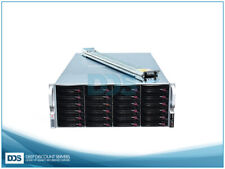
Supermicro 4U 36 Bay Storage Server 2.2Ghz 16-C 128GB 1x1280W Rails TrueNAS ZFS
$716.98
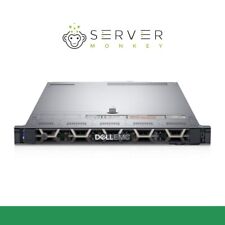
Dell Poweredge R640 Server | 2x Silver 4114 20 Cores | 192GB | 8x HDD Trays
$1939.99

Dell Poweredge R640 Server | 2x Silver 4114 20 Cores | 96GB | 8x 1.8TB Dell SAS
$2749.99

Dell Poweredge R640 Server | 2x Silver 4114 20 Cores | 64GB | 8x HDD Trays
$1614.99
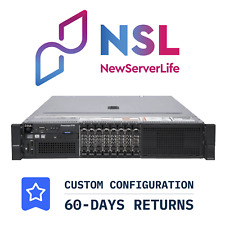
DELL PowerEdge R730 Server 2x E5-2690v3 2.6GHz =24 Cores 32GB H730 4xRJ45
$274.00
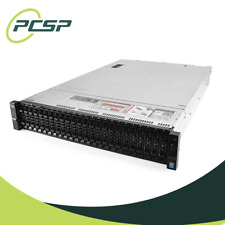
Dell PowerEdge R730XD 28 Core Server 2X Xeon E5-2680 V4 H730 128GB RAM No HDD
$389.99
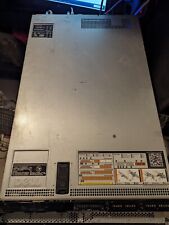
Dell PowerEdge R620 Server 2x E5-2660 v1 2.2GHz 16 Cores 256GB RAM 2x 300GB HDD
$79.19
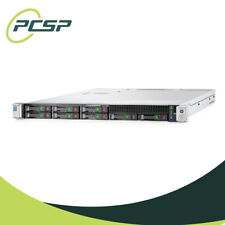
HP Proliant DL360 Gen9 28 Core SFF Server 2X E5-2680 V4 16GB RAM P440ar No HDD
$196.95
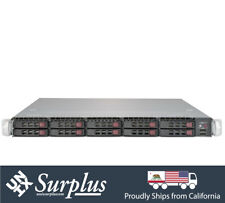
1U Supermicro Server 10 Bay 2x Intel Xeon 3.3Ghz 8C 128GB RAM 480GB SSD 2x 10GBE
$297.00
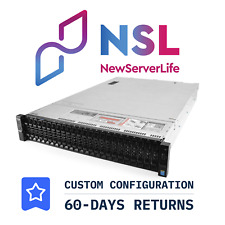
DELL R730XD Server 2x E5-2680v4 2.4GHz =28 Cores 128GB H730 4x 1.2TB SAS 4xRJ45
$504.00



 Reply With Quote
Reply With Quote








